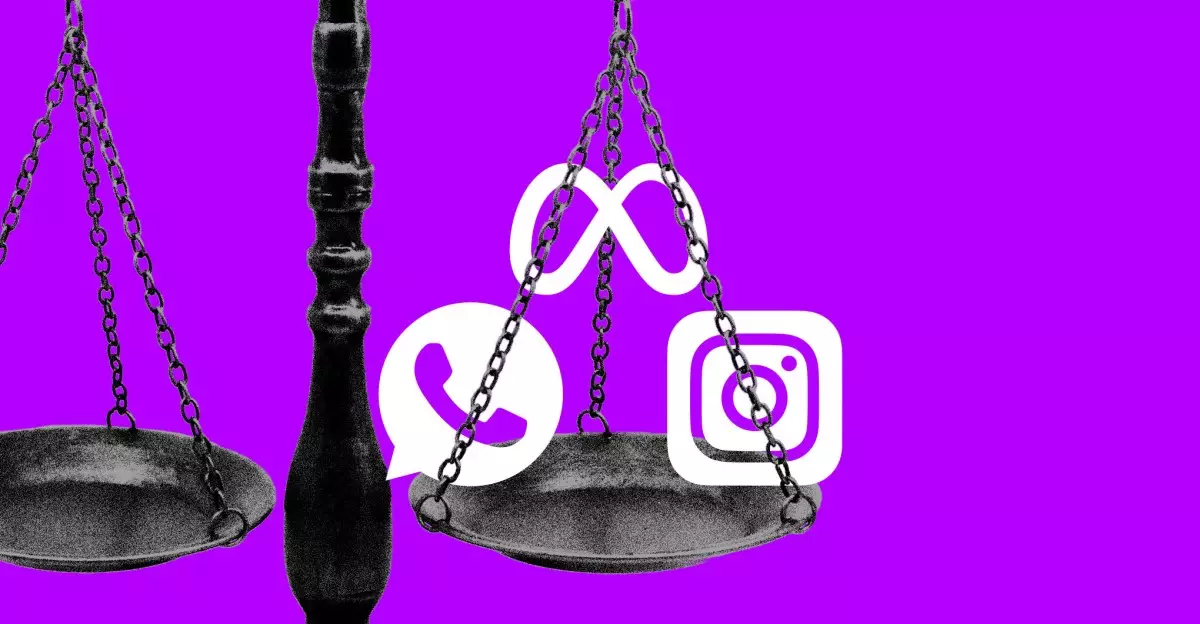The recent FTC v. Meta trial has unearthed significant revelations about the leadership acumen of one of tech’s most polarizing figures, Mark Zuckerberg. With the eyes of regulators and the public scrutinizing his decisions, the courtroom became a stage where Zuckerberg defended the monumental acquisitions of Instagram and WhatsApp, claiming they were not tactical maneuvers to squash competition, but strategic plays designed to evolve the social media landscape. As significant as this trial is from an antitrust perspective, it also raises poignant questions about innovation, competition, and corporate responsibility within the tech industry.
The Cost of Innovation: A $19 Billion Gamble
During these pivotal court sessions, a striking moment occurred when Zuckerberg delivered a passionate endorsement of his $19 billion purchase of WhatsApp in 2014. Seemingly unrepentant, he remarked, “I’d do it again.” This bold assertion reflects a conviction that may reverberate throughout the tech world, where executives are continually scrutinized for their investment choices. However, the smile faded as it became evident that the core argument against him is underpinned by a narrative suggesting that both acquisitions were not acts of foresight but rather maneuvers of self-preservation.
Zuckerberg’s testimony focused on dismissing the accusation that he sought to extinguish these platforms. He argued that he was not only evaluating potential threats but recognizing the transformative potential of these platforms in reshaping online communication. By spotlighting the shift toward private messaging, Zuckerberg painted the acquisition of WhatsApp as a proactive move to harness changing user behaviors rather than merely a defensive reaction against perceived threats.
An Uneasy Alliance: Balancing Power with Competition
The court’s examination of Zuckerberg’s relationships with tech giants Apple and Google added another layer to his argument. He articulated his shared concerns about their pervasive influence and the dependencies Facebook had on their app stores. By acquiring WhatsApp, Zuckerberg believed he would reap leverage that he could use to negotiate better terms, asserting, “We’re always worried about them messing with us.” This sentiment exposes the intricate web of partnerships and rivalries inherent in the tech ecosystem, where even behemoths are vying for dominance amid a landscape often dictated by external forces.
However, the skepticism surrounding Zuckerberg’s motives continues to loom over his testimony. The internal documents and emails reveal a genuine belief among skeptics that these transactions were designed to snuff out competition rather than foster innovation. Zuckerberg’s characterizations of WhatsApp and Instagram, and their trajectories following their acquisitions, inevitably prompt deeper inquiries into whether the tech industry can thrive while also ensuring that competition flourishes.
Instagram: A Double-Edged Sword
Zuckerberg portrayed Instagram’s journey in a light that thrived on his foresight. Arguing that it achieved astronomical growth from a mere 10 million users at the time of acquisition to over 2 billion today, he pointed to the resources and support given to Instagram to help it scale its operations effectively. Yet, the same documents divulged by the prosecution suggest an underlying tension: a fear of competition stemming from Instagram’s rapid growth caused Zuckerberg to impose restrictions that ultimately strained relationships with Instagram’s founders, Kevin Systrom and Mike Krieger.
Zuckerberg’s approach revealed a paradox. While on one hand, he viewed Instagram as complementing Facebook’s broader ecosystem, on the other, he was anxious about its potential to siphon users away from Facebook itself. This tension is emblematic of the challenges tech leaders face when attempting to navigate their own turf while managing what they perceive to be external threats.
The Future of Competition in the Tech Landscape
The court session not only underscored the intricate dynamics of Zuckerberg’s leadership but also amplified the broader conversations around monopolistic behaviors within the tech industry. As Zuckerberg delineated a narrative of investment in innovation, the U.S. government sought to argue that private markets function best when competition thrives without the looming shadow of consolidation.
As the trial progresses, observers are left to ponder: can Facebook, in its current configuration, operate without stifling the vibrant competition that has characterized the tech industry? The verdict of this trial will not only impact Meta’s corporate future but also signal to future entrepreneurs the interplay between ambition and market dynamics in defining technology’s trajectory. The outcome will either bolster Zuckerberg’s narrative of visionary acquisitions or reinforce the arguments that these moves smother competition to fortify a monopolistic stronghold.

